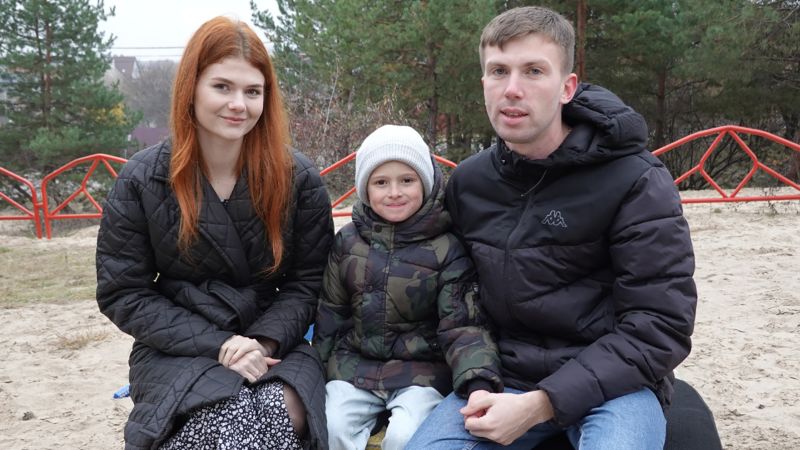COLUMBUS, Ohio — Ohio has historically remained lower than most states in the nation for child care funding, and advocates on both sides of the abortion argument say that needs to change.
Ohio was ranked last in the nation for state financial support in 2017, according to that year’s Public Children Services Association of Ohio (PCSAO) Safety, Permanence, and Well-Being Report- the.
“Even if Ohio doubled state spending on child welfare, it would still be ranked 50th in the nation,” the PCSAO analysis added.
Ohio was ranked 31st in the nation for “child well-being” in 2021 by the KIDS COUNT Data Center. This ranking was decreased by the Rutgers Graduate School of Education’s National Research Institute for Early Education, ranking Ohio at 33 for state spending to 38 for total spending.
Pro-life organizations in Ohio believe adoption is the best thing to do in the event of an unexpected pregnancy, but choice advocates say there are plenty of children who need help right now.
According to state data, more than 15,000 children are in foster care or institutions.
“I can tell you that there are countless families like mine who are willing to adopt where the need arises,” said Michael Gonidakis, president of Ohio Right to Life.
The organization wants to help people have healthy children, but they understand the need to put a baby up for adoption, Gonidakis added.
Mike Moroski is executive director of the Human Services Chamber of Hamilton County and chair of the Policy and Equity Committee of the Cincinnati Public Schools Board of Education. He has a very different perspective on how to move forward after Ohio banned most abortions.
“People out there running around saying ‘adopt kids,’ I have news for you,” Moroski said. “There are a ton of children, why not adopt them?”
However, both men agree that children should be the state’s priority.
“The foster care system needs more money,” Gonidakis said. “We have it, and shame on our elected officials if they don’t use it to help children.”
After Ohio’s decision to ban abortion at six weeks took effect, there was a scramble to figure out what might happen with the already overwhelmed foster and adoption system in the State.
Gonidakis, who adopted her daughter from Guatemala at seven months and her son from Cleveland at three days old, believes the solution may be to make the system more accessible to families.
“I personally worked on legislation here in Ohio to reduce the cost of an adoption because we had to take a line of credit on our house to pay for adoptions – it was too expensive,” he said. he declares. “We need to make sure there is less bureaucracy and more capacity for families who want to scale to be able to do so.”
Moroski said it was much bigger than that.
“They force people to give birth to children who will have nothing for them,” Moroski said. “We’re talking about a state government that went out of its way to make sure same-sex couples couldn’t adopt children.”
This, combined with the pandemic, makes the cancellation of Roe v. Wade even costlier, he added. This is especially relevant for black children, as state data shows the system disproportionately affects them.
“I’ll start with racism,” the pro-choice attorney said. “I know why they don’t adopt them.
“They’re waiting on lists for white babies to come in and they’re not adopting those black and brown kids who are in foster care.”
He makes it clear that reunification should be the goal of foster care, but his point still stands.
“I would just tell people to open their hearts and maybe not look at the color of the skin or any other complications that may arise whether the child has a special need or not,” Gonidakis said, noting that his children are of different races from him and he loves them all the same, of course.
He also agreed with Moroski that it’s “sad and unfortunate” that people have preconceptions about foster children.
“The reason I’m so passionate about this, the reason I’m so upset about this, is because the people who get screwed over most by our state government are young children,” he said. Moroski said. “Now you have a state government capitalizing on the Supreme Court’s glaring decision to overturn Roe v. Wade, to force women to bring children into this type of environment, knowing full well that there is no there will be no protection for these children.”
The lawyer works with foster care coalitions and said they are struggling.
“Less staff, less money, more needs,” he said, listing their challenges. “Money is down, especially in urban centers, because again the state legislature made sure people didn’t have to pay their income tax if they worked at distance. So all the folks at Procter & Gamble and Kroger are home, not having to pay their income tax – and therefore our city government has no money.”
P&G and Kroger each have their headquarters in Cincinnati.
“Government is a necessary cog in the wheel, figuring out how to fund agencies in these 88 counties that actually do the hard work fairly, that has a low barrier of entry for agencies that do the real hard work, I think that’s important, and I think that’s their role,” Moroski said.
News 5 contacted more than a dozen foster and adoption agencies who all declined to speak, with some adding that the issue was too complex to discuss at this time.
Meanwhile, Gov. Mike DeWine addressed the state on Friday outlining his plans to support children.
This included the Bold Beginnings initiative, which would provide $1 billion for child care assistance, such as prenatal care and nutritional assistance.
Follow WEWS State House Reporter Morgan Trau on Twitter and Facebook.
 Christ Yoder
Christ Yoder
/cloudfront-us-east-1.images.arcpublishing.com/gray/ODYKQRO5GRGJREMXBZNK5UFIX4.jpg)


